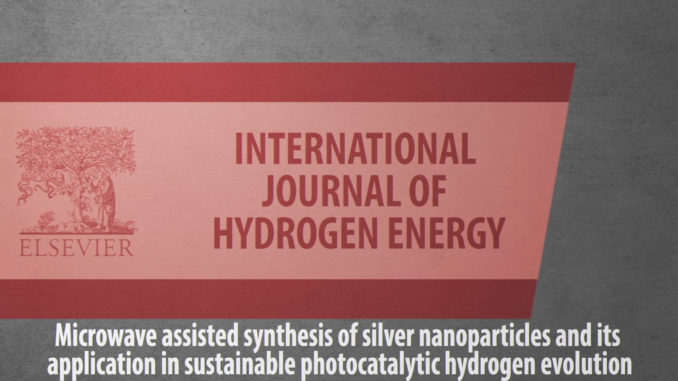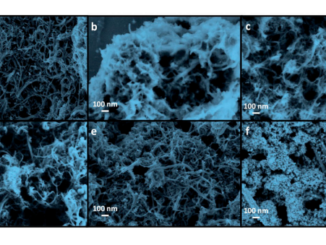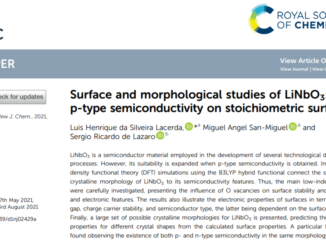
Microwave assisted synthesis of silver nanoparticles and its application in sustainable photocatalytic hydrogen evolution
Abstract: Large amounts of photocatalysts are needed for the generation of solar hydrogen (H2) and eco-friendly synthetic alternatives are essential. Here, we use glycerol as solvent and reducing agent, and food grade corn starch as stabilizing agent for the preparation of silver nanoparticles (Ag NPs) by microwave irradiation. The Ag NPs were also synthesized using various proportions of glycerol/water mixtures. The Ag NPs were loaded onto commercial TiO2 NPs to study the photogeneration of H2. Characterization was carried out by UV–vis, XRD, TEM, UV–Vis DRS, and RBS. Stable Ag NPs after 320 days of aging with diameters from 2.9 to ~44 nm were prepared under several experimental conditions. Finally, TiO2@AgNPs showed that the rate of evolved H2 is stable, much higher than pure TiO2 NPs and proportional to the amount of Ag NPs loaded. The present study introduces a new sustainable and eco-friendly strategy for designing low-cost photocatalysts for H2 generation.
Author(s): Strapasson, G.B.; Assis, M.; Backes, C.W.; Corrêa, S.A.; Longo, E.; Weibel, D.E.
International Journal of Hydrogen Energy
Published: 6 October 2021, Volume 46, Issue 69, Pages 34264-34275
DOI: https://doi.org/10.1016/j.ijhydene.2021.07.237
CDMF
The CDMF, hosted at the Federal University of São Carlos (UFSCar), is one of the Research, Innovation and Dissemination Centers (RIDC) supported by the São Paulo State Research Support Foundation (Fapesp), and also receives investment from the National Council Scientific and Technological Development (CNPq), from the National Institute of Science and Technology of Materials in Nanotechnology (INCTMN).




